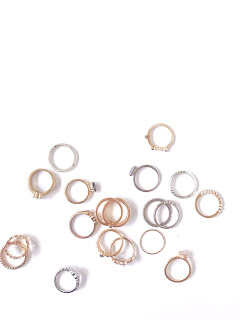DoorDash, Risk, and Why I’m Poor Today
If only I’d launched my Munchie Delivery Service in 1987, I’d be a billionaire by now
“DoorDash Brings Big Gains In Debut of Shares,” my copy of the Wall Street Journal says today. But the idea for it was hatched over games of Risk I played in college; I can only assume that a friend of a friend latched onto my idea in 1987 and then sat on it for a few decades.
Just to set the scene, my friend Lori and our then-spouses were college seniors who sometimes got together to play Risk and indulge a bit. After such indulgence — the type that is legal now but not so much then — the munchies would hit. Sure, we could have ordered a pizza or a sub, but that was the extent of the munchy-satisfaction services that were available back then.
About mid-way through the night, as I began to lose big, I’d describe the business I thought we should start.
“There should be a Munchie Delivery Service, man,” I would start out.
“They’d bring you whatever you wanted,” I’d explain. “Not just pizza, although a pizza would be great right now. But what about fries? Wouldn’t some fries be great right now? You could just order a bunch of burgers and fries if you wanted, and they’d bring them to you. Or ice cream. They’d pick up whatever you wanted. The Munchie Delivery Service, man. We need to start it.”
Then I’d explain all my ideas for such a business. It was a familiar routine that I went into often, and three decades later, Lori and I still laugh about it.
There were several reasons I never started such a business. For one thing, I was a journalism major who planned to serve democracy, not junk food. For another, I have been broke-ish for most of my life. (See major.) For a third, I lost every game of Risk I ever played, because I am not at all a risk-taker by nature. To win at Risk, as the game implies, you have to take risks. The more aggressive players usually win. I am a play-it-safe kind of person … which I now realize is perhaps the riskiest path of all. Financially, caution hasn’t served me well (though it’s kept me from homelessness. There is that.)
But even as a journalism major, I had the basic math skills to tell me such a service couldn’t be expected to make any money. I’d worked in a lot of restaurants as a student; I was aware of their thin profit margins. The logistics of running around picking up food from different establishments and then delivering it wherever it was wanted, still at optimal serving temperature? And then getting a high enough delivery fee to pay the driver? Impossible, I decided. You’d never make enough to pay the driver’s salary. It was so clear even a person with an English minor could see it.
But here’s where I was wrong. Businesses don’t have to make money anymore! DoorDash is valued at $71.8 billion, the WSJ story states, even though it has never made a profit.
Let me underscore that: We are in the middle of a pandemic, nobody can eat inside restaurants, marijuana is legal in many states, and DoorDash is still not making a profit. But it is worth $71.8 billion. Got it.
This is in great part because businesses don’t have to pay salaries anymore. If you call your people independent contractors, it’s OK to exploit them. It’s just good business.
This is why I wouldn’t have succeeded in business. I always had the crazy idea that a successful business needed to make enough money to support both owners and workers. Uber? It’s never made a profit, and most drivers struggle.
But the tech world is full of businesses that lose enough to run a small country every year, even while screwing their workers, but still draw investor dollars. Everyone is hoping the rathole down which they throw their dollars will end up an Amazon.
Is the long-term trend going to be people staying home and having things brought to them, often thanks to underpaid people? I wouldn’t have bet on meal prep companies, either (suggested slogan: “All the mess of cooking with all the expense of eating out!”) but they’re popular. I wouldn’t have bet on people having literally everything from toiletries to TV sets delivered to their homes, but that predated the pandemic and is probably not going to change. You don’t even need to purchase your clothing or household furnishings anymore; there are services that will rent these things to you and you just send them back anytime you want something else. No need to purchase anything, including a car. Just grab your phone and order meals, clothing, a ride. But why would you need an Uber to take you anywhere, when you can have anything you want brought to you?
Empty storefronts and abandoned big box stores were already a problem Before and the problem is escalating. I remember a city administrator explaining at a city council meeting that it was safe to assume you were always going to make a lot of revenue from sales tax. Oops. I remember a city planner saying towns needed to give up on shopping destinations and instead pursue businesses that provide “experiences.” But now it looks more like we’ve decided to instead depend on giant, unprofitable-for-now corporations that will just bring everything to people at home. They’ll pay people a pittance to do it. Some of them will, through destroying present-day companies and exploiting their independent contractors, make incredible riches. That’s where we are right now.
Seems like a big risk to our society to me, but clearly I know nothing.
I sent a copy of the DoorDash bit to my friend Lori just now. She was also a journalism major, but she had the sense to go into advertising.
“‘Munchie Delivery Service’ was a better name,” she said.



Comments
Post a Comment